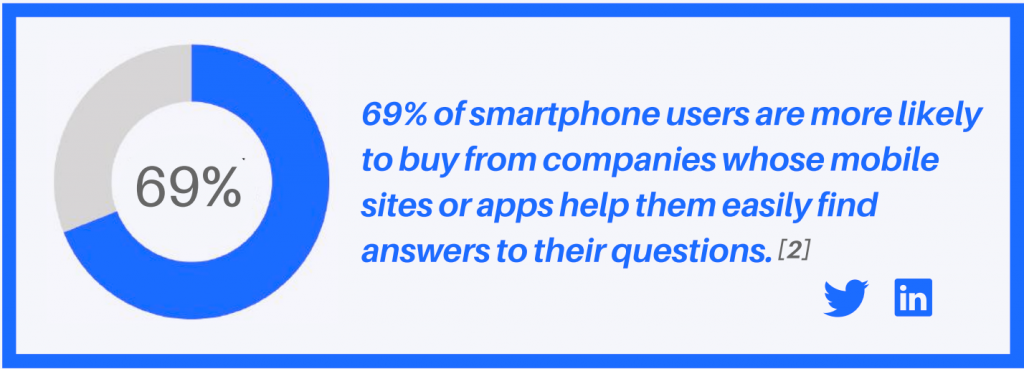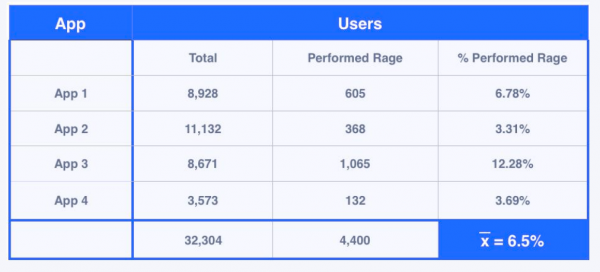In today’s digital economy, it is no longer enough for an organization to deliver merely a product or service. Every successful organization is in the business of delivering User Experience.
User expectations have now changed, to an experience that’s intuitive, personalized, memorable and omnichannel. The stakes of not keeping up to this new expectation are high: One in three consumers (32%) say they will walk away from a brand they love after just one bad experience. Consumers today connect and are in control.
How a brand delivers value for its customers is as important as what it delivers.

The tools that traditionally track “vanity metrics” such as page visits, DAU, MAU or events are unable to capture such large micro-interaction data sets or to interpret such big data. These legacy tools completely miss what matters: the user.
Organizations need to adopt a new strategy that leverages Advanced Machine Learning techniques to analyze their complex users, revealing their experiences and surfacing their frustrations.
Machine learning and AI principles have long been drivers of fiction, but recent breakthroughs in computing power and the availability of massive data have made some of these ideas into reality now. Sophisticated brands like Amazon and Google are already leveraging this to understand their users and optimize their user experience. Users expect the same from other organizations too.

Interpreting User Interactions
Users naturally exhibit emotions when interacting with your brand. These emotions influence important key behavioral decisions and manifest through actions, such as whether they purchase and become loyal to your product or get frustrated and abandon the brand. The default user reaction to frustration and a bad experience is to say nothing.
This results in a knowledge gap for leaders about the actual user experience and contrast between the actual and the reported online experience. Thus, understanding user interactions to uncover issues and implement strategies to resolve them is crucial. This has practical business significance for brand loyalty.
It all starts with tracking the complete users’ digital footprint. This includes completely capturing digital gestures and micro-interactions made by all of your customers. For this, the analytics solution should be capable of gathering complete granular data of every micro interaction by your customer. This depth of data enables the AI and Machine Learning models to learn through data, find patterns and provide actionable insights.
Uncovering Unresponsive Interactions
Because of suboptimal UI design, a user may find it logical that the interface responds in a certain way to her interaction. But when the user performs these interactions, the app does not respond.
For example: the user has the impression that they can zoom in on a picture. Hence she tries to pinch and zoom. Another example: a user sees a certain image that gives the impression of a button. But when he tries to interact with it, it is not clickable. Here, the user has had multiple failed attempts and gets frustrated.
By surfacing unresponsive interactions, these misleading and confusing designs reveal and can be resolved.
Surfacing Rage Interactions
The user also manifests frustration with the product through a series of rapid-fire taps in frustration. We call it rage taps.
This rage happens when the product interaction fails because of an unresponsive gesture, as described above, or because of the slow response time of the product. From our analysis, we have seen a large set of unresponsive gestures triggering rage taps.
Using UXCam’s rage tap solution, a randomized sample of 32,304 users, split across 4 established apps with thousands of daily active users, showed that on average 6.5% of gestures were rage gestures.

Out of the 328,000 performed gestures, 4,400 were rage gestures. The lowest percentage for users that performed rage gestures was 3.31%, the app with the highest percentage reached 12.28%.
These numbers are high enough to conclude that businesses who keep the percentage of rage taps below the average of their competitors gain a competitive edge.

Rage analysis surfaces the most crucial and fragile part of the product and has a significance for the design, evaluation, and improvement of the product. More importantly, it surfaces the enraged users that had a bad experience with the product and might be on the verge of abandoning the product altogether.
An usability problem like this creates such a drastic mismatch of expectation that it leads to severe frustration for the customer, whereby the customer leaves the app with a bad experience and a negative image of the brand.
Analytics solutions that captures the micro-interaction level digital footprint of the customer can reveal these issues.
Pattern Analysis and Alerts
Upon capturing micro interaction level data, normal behavior can be understood through machine learning. Any changes to this pattern would either identify as seasonally expected deviations or be used as a real-time alert.

Endless possibilities ahead
The recent advancement of solutions to capture a vast amount of micro-interaction data of the complete user digital footprint – and machine learning tool to analyze such big data – is now enabling companies to have an accurate depiction and understanding of users and opening the possibilities for companies to deliver experience to the likes of Amazon, Apple, and Google, as an answer to the expectations of the today’s users.
A business that will build such capabilities into its process will break data barriers, achieve game-changing insights and move with unprecedented speed and agility outmaneuvering their competition.
They will be the ones that, not just survive, but thrive in the Experience Economy era.
You can download this report as a pdf here.
About UXCam
UXCam helps companies identify usability issues in their mobile applications to make informed product decisions by automatically gathering complete micro-interaction data and deriving insights.
In the competitive digital market, data-driven decision making decides over a company’s success or failure. Even enterprise companies often lack the experience and resources to set up and maintain pipelines to gather comprehensive usage data from their applications.
Our one-line auto-capture solution gathers and processes the complete user interaction and journey from multiple sources without the need for code adaptation. We use our team’s vast experience in data analysis to automatically provide actionable insights through our online visual tools and data analysis services.
AUTHOR

Jonas Kurzweg
Growth Lead
UX, marketing & product nerd. Coffee enthusiast. Working at UXCam.
What’s UXCam?
Related articles
Mobile app analytics
5 Best Session Replay Tools to Identify Mobile App UX Issues
We’ve highlighted the top picks on the market for session replay tools and dug into what they’re known for, who they’re best for, and what users say about...

Audrey Meissner
Mobile app analytics
How to improve mobile app performance
Discover the secrets to improving your mobile app's performance. From monitoring crashes and UI freezes to minimizing app launch delay; improve your user's experience...

Tope Longe
Growth Marketing Manager
Mobile app analytics
Amplitude Mobile Analytics - Get the WHY with UXCam
Explore the key features and limitations of Amplitude mobile analytics and discover how integrating it with UXCam can provide a more comprehensive...

Tope Longe
Growth Marketing Manager

